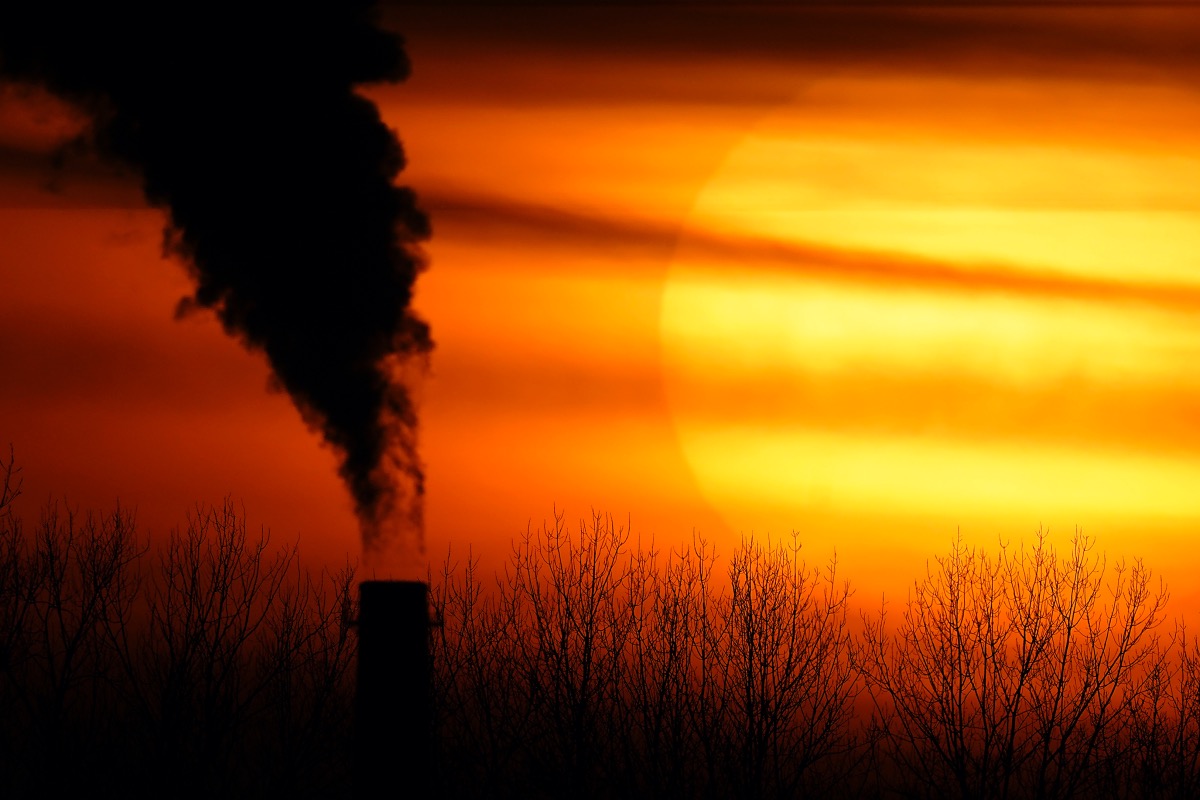

AP Photo/Charlie Riedel
LAS VEGAS, Nevada — Growing up in North Las Vegas, I have first-hand experience with the difference in air quality between neighboring communities and more affluent areas. I have seen transportation hubs, warehouses, and factories predominantly situated in low-income areas.
As a first-generation Latina, I recognize the privilege my education has given me to inform my community about the health harms of poor air quality. This is why I choose to be a voice for the community to put an end to environmental racism, so we can all breathe healthier air.
The country is at a crossroads. We must decide whether to seek cleaner forms of energy or continue on the path of fossil fuel dependence and its many harms to health. The Environmental Protection Agency (EPA) recently made several announcements to further lower emissions, including reinstating California’s authority to implement its own cleaner car standards under the Clean Air Act.
It is crucial for the Biden administration to ensure the cleanup of a particularly potent greenhouse gas: methane. Methane traps 80 times more heat than carbon dioxide. Its production pollutes the air we breathe, and its release into the atmosphere contributes significantly to the climate emergency we are currently trying to mitigate. In a hopeful sign, during the 2021 United Nations Climate Change Conference in Glasgow last fall, over 100 countries signed a pledge to reduce methane emissions by 30 percent by 2030 compared with 2020 levels.
The #ClimateCrisis is the single biggest health threat facing humanity.
On today’s #WorldHealthDay, let’s commit to turn the 2020’s into a decade of transformational #ClimateAction.
For our ? and our health.#HealthierTomorrow pic.twitter.com/gOPCZIIOkb
— UN Climate Change (@UNFCCC) April 7, 2022
The oil and gas industry’s extraction and production of methane drive climate change, but also lead to the release of other forms of air pollution. Most notable are volatile organic compounds, or VOCs. VOCs contribute to the formation of ground-level ozone, also known as smog. Exposure to smog contributes to asthma attacks, is especially dangerous for children and the elderly, and aggravates other chronic lung diseases and pre-existing heart problems. Ozone is also linked to premature birth, a leading cause of infant death with low birth weight.
Communities living near oil and gas operations are especially at risk from these toxic emissions. More than 1.81 million Latinos live within half a mile of oil and gas facilities. According to a 2016 report from the National Hispanic Medical Association and the Clean Air Task Force, the air present in these communities violates the air quality standards for ozone smog. This is especially dangerous for the children in these communities that are particularly vulnerable to both ozone and VOC pollution due to their faster breathing rate, the greater proportion of time they spend outside, and their still-developing lungs.
Furthermore, the Latino community suffers from high rates of asthma, which puts many Latino children at a disadvantage due to the number of missed school days. Reducing the levels of VOCs and ozone would contribute to children’s respiratory development and health and protect the Latino community from high pollution levels. That’s why it’s important to prioritize the communities bearing the brunt of our air pollution burdens.
By cleaning up all pollution sources, especially in communities most at risk, we ensure everyone can breathe cleaner and healthier air.
The evidence is clear: the time for action is now. We can halve emissions by 2030.
The #IPCC has just released its latest #ClimateReport on the mitigation of #climatechange.
Press Release ➡️ https://t.co/N9cLJFBbnA
Read the report ➡️ https://t.co/mIdBKgvokW pic.twitter.com/JbvFYy72qf— IPCC (@IPCC_CH) April 4, 2022
According to Yale Environment 360, “last year, atmospheric methane levels reached a grim new milestone, surpassing 1,900 parts per billion, the highest level in almost 40 years of record-keeping.” The EPA needs to go further to protect the health of communities and address climate change. New polling data shows 71 percent of registered voters support strengthening rules to reduce oil and gas methane pollution, including requiring frequent inspections at smaller leak-prone wells.
The nation has the tools and technology to cut methane pollution from new and existing oil and gas operations right now. I urge EPA and this administration to set stronger standards and eliminate loopholes for smaller operations. As a society, we have a moral obligation to ensure ethnic and vulnerable communities are informed and aware of the threat of methane. We must call for action that protects the health of vulnerable communities.
***
Melissa Ramos is the manager for Clean Air Advocacy at the American Lung Association, the leading organization working to save lives by improving lung health and preventing lung disease through education, advocacy and research. Twitter: @Melissa_Ramos21


